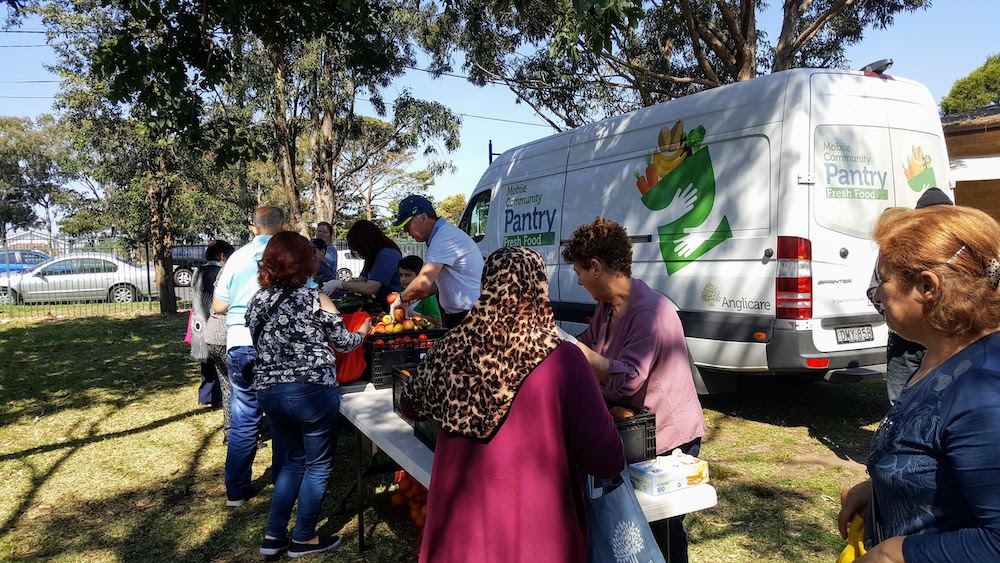A series of horrifying gang rapes changed the Sydney suburb of Greenacre and nearly emptied the Anglican Good Shepherd church.
Within a couple of years, the suburb changed from a place where most people owned their own homes to a district with a majority of houses to rent. Locals still recall that Christians, especially with families, were urged to leave. Many did.
But a team from my church, which is several suburbs away and in a middle-class area went west on a rescue mission.
My friend Guy Freeman was one of them. Recently I visited with him and the Good Shepherd Minister Grant De Villiers to find out the latest.
Back in 2000 when the crimes occurred Guy and I both happened to be on the staff of the Sun-Herald newspaper which broke the story of Bilal Skaf who led a gang of Lebanese-Australian men in attacking a series of young women. Identifying the cultural background of the criminals was going to be controversial, and I was privy to the struggle the editor has over this story. There was a moral panic in the community. A sad series of similar crimes – including one set much closer to my house – fuelled a racist atmosphere in Sydney.
Two sets of prayers were answered in the aftermath. Guy recalls “The folk here had been praying for the Lord to send people, and at Croydon, we’d been praying Lord, where can you send us to be useful?”
A missionary from Germany, Tillman Klein. had been ministering among the Muslim Community in Greenacre while attending St James Croydon. He explained that emptying the churches around Greenacre would hinder the gospel. Tillman is still ministering, now back in Germany among Arabic-speaking refugees.
Klein’s experience was while Muslims are unlikely to visit a church to find out about Christianity, he found having a lively church close by aids gospel conversation. Guy recalls him saying“when small churches like this one look to be functioning poorly or look to be dead, it gives a poor witness to the, to the Muslim community in the areas of been living. And there needed to be something done to revitalize this church in particular.”
So a deal was done. Barry Dudding the senior minister at Croydon would look after Good Shepherd and he would encourage a team to leave St James for Good Shepherd. “Me being a person of, um, having ADD [Attention Deficit Disorder] before he’d finished saying, ‘would anyone like to go?’ I had my hand up,” Guy it should be noted is married to a sensible wife, Sue. “I think there were about 30 of us who came over and 15 stayed after an initial flush of enthusiasm.” After a time, John Bales from CMS became the minister,of the Good Shepherd.
“Others have come and gone on to other ministries. Some went back to Croydon and others have gone to heaven and it’s been good. It’s been terrific to be part of it. You wrote a piece about it in Southern Cross.”
“I did indeed,” I respond
“About me being mad.” Guy teases.
“ Yeah. And that you were.”
But ‘mad” to a good end. Sixteen years later the Freemans and another ex-St James family are still there in a church of about 30 adults and 15 children. Good Shepherd is still a small church. But a faithful, hopeful and committed one. It’s a church where somebody in a hijab will visit and there will be someone to sit beside them and translate into Arabic. A homework club, an Anglicare food van, and community picnics are other ways Good Shepherd connects.
“We’ve had a small number of people come to faith from a Muslim background within our parish, Grant De Villiers tells Theothercheek. “But they’ve come to faith in many cases simply because we’ve been here.”
De Villiers knows the district. “Unlike some, some other local suburbs which have a larger percentage of new migrants, the people who live here are much more established, have established family and social networks and are sometimes harder ground in which to serve the seed of the gospel. But it’s an area that has a growing Muslim population, even from the last census we’ve had over 2000 new Muslim people arrive in our area. It’s a really important space for us to continue to sort of seed of the gospel.”
It’s still a tough place to be a minister. I am humbled, thinking that it takes courage to plough on.
As I get ready to leave we walk around the front of the 1980’s concrete block building. It looks a bit closed in for now and we discuss plans to change all that. Instead of a couple of the windows being boarded up there will soon be glass. A new, welcoming front door. A refreshed garden at the front, too.

